There is always much to learn from quotes and their historical significance. Read on for a collection of quotes and general history from October 13th – 19th.
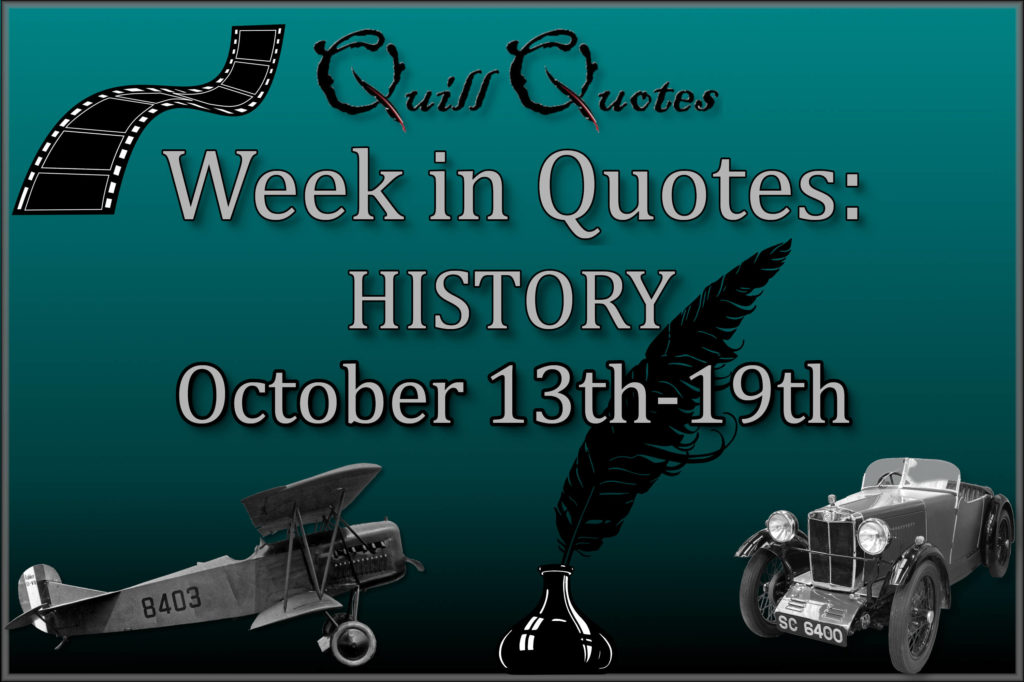
October 13, 1792
“I pray Heaven to bestow the best of blessings on this House, and all that shall hereafter inhabit it. May none but honest and wise men ever rule under this roof.”
– President John Adams, First resident of the White House
The cornerstone for the Executive Mansion, now called the White House, was laid on October 13, 1792. Upon completion in 1800, John Adams took up residence there and every U.S. president since has followed suit. Various additions and restorations have been performed over the years to arrive at the 132-room, 55,000 square foot White House we know today. Although the public began calling it the “White House” as early as 1811, the name was not made official until 1901 when President Theodore Roosevelt had it added to the stationary.
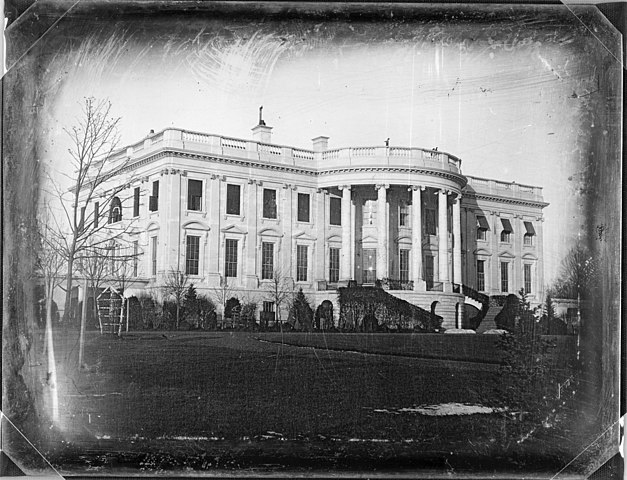
October 14, 1986
“Wiesel is a messenger to mankind; his message is one of peace, atonement and human dignity. His belief that the forces fighting evil in the world can be victorious is a hard-won belief. His message is based on his own personal experience of total humiliation and of the utter contempt for humanity shown in Hitler’s death camps. The message is in the form of a testimony, repeated and deepened through the works of a great author.”
– Norwegian Nobel Committee
On October 14, 1986, Holocaust survivor and author Elie Wiesel was awarded the Nobel Peace Prize. After living through the Auschwitz and Buchenwald concentration camps during World War II, Wiesel dedicated his life to humanitarian efforts and ensuring the Holocaust was remembered. He was a founder or active member in numerous human rights groups, including the United States Holocaust Memorial Council, New York Human Rights Foundation, and Elie Wiesel Foundation for Humanity. Wiesel authored more than 50 books, mostly about the Holocaust. His most notable work, “Night”, is based on his own experiences as a Jewish prisoner.
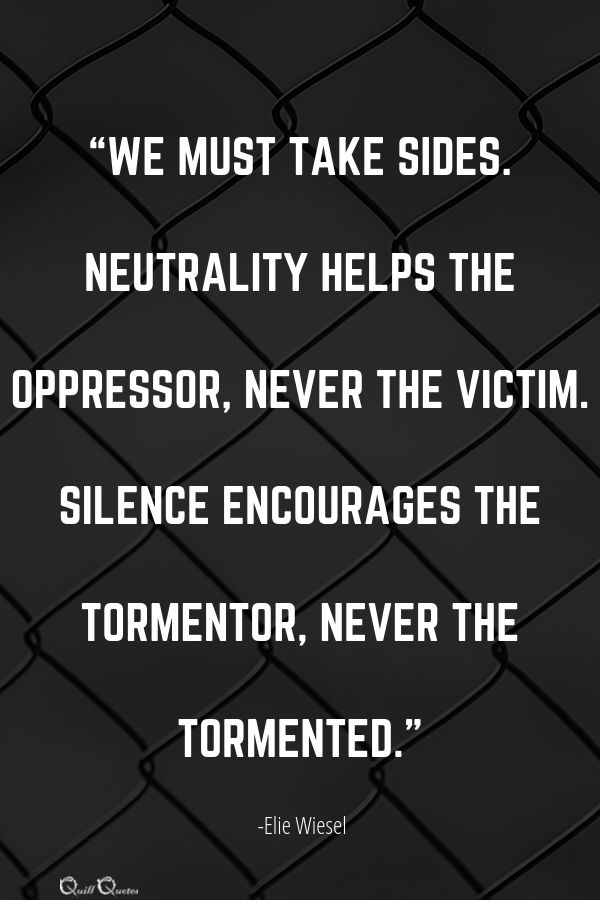
October 15, 1987
“Earlier on today, apparently, a woman rang the BBC and said she heard there was a hurricane on the way; well, if you’re watching, don’t worry, there isn’t, but having said that, actually, the weather will become very windy, but most of the strong winds, incidentally, will be down over Spain and across into France.”
– Michael Fish, BBC Meteorologist
On October 15, 1987, the Great Storm of 1987 hit England and France with hurricane-force winds. As one of the worst mis-forecasts in TV weather history, BBC’s Michael Fish reported earlier that day the storm was nothing to be concerned about. Instead, the storm brought wind gusts above 100 knots (115 mph), the probability for which is 1 in 200 years. The storm killed at least 22 people, left thousands without power, and caused an estimated £2 billion in insurance claims. As a result, major improvements were made to weather forecasting observations, models, and meteorologist training.
October 16, 1962
“It shall be the policy of this nation to regard any nuclear missile launched from Cuba against any nation in the Western Hemisphere as an attack by the Soviet Union on the United States, requiring a full retaliatory response upon the Soviet Union.”
– President John F. Kennedy
The Cuban Missile Crisis began on October 16, 1962, when President John F. Kennedy was notified of U-2 spy plane images identifying Soviet nuclear missiles in Cuba. Following the United States’ failed Bay of Pigs Invasion, Fidel Castro requested nuclear missiles from the Soviet Union to be placed in Cuba to deter a future invasion. Soviet leader Nikita Khrushchev agreed, partially due to the presence of American Jupiter ballistic missiles in Turkey and Italy. The discovery of missiles in Cuba led to a U.S. naval blockade and several days of tense negotiations. This period is often considered the closest the Cold War ever came to full-scale nuclear war. Thankfully, a resolution was reached on October 28th for the removal of Soviet missiles from Cuba. In exchange, the U.S. promised never to invade Cuba without direct provocation and removed its missiles from Turkey and Italy.
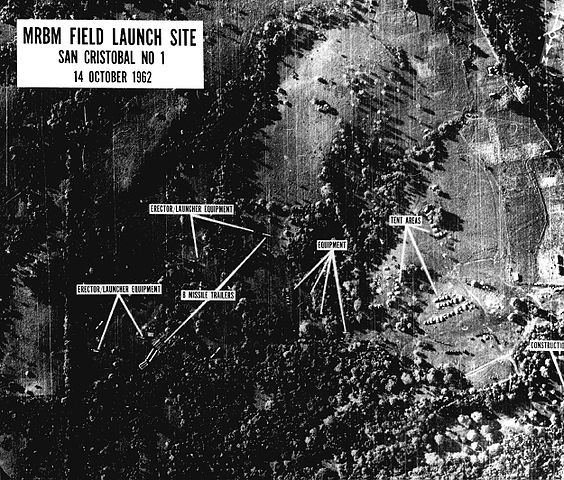
October 17, 1989
“I’ll tell you what, we’re having an earth – .”
– Al Michaels, Just before and after 1989 World Series TV coverage was lost
“Well, folks, that’s the greatest open in the history of television, bar none!”
On October 17, 1989, the Loma Prieta earthquake occurred near San Francisco. Since it happened during Game 3 of the World Series between the Oakland Athletics and the San Francisco Giants, it is often called the “World Series earthquake”. With a magnitude of 6.9, the earthquake caused 63 deaths and 3,757 injuries. Many of these casualties were caused by the collapse of a section of the double-deck Nimitz Freeway in Oakland. A 50-foot section of the San Francisco-Oakland Bay Bridge also collapsed. In all, the quake caused an estimated $6 billion in damage. The World Series was delayed 10 days, the longest delay in World Series history, but likely saved many lives with Bay Area residents ready to watch the game rather than out on the freeways.
October 18, 1867
“General Rousseau, by authority from His Majesty, the Emperor of Russia, I transfer to the United States the territory of Alaska.”
– Captain of 2nd Rank Aleksei Alekseyevich Peshchurov
The Alaska Purchase was finalized on October 18, 1867, transferring Alaska from the Russian Empire to the United States for $7.2 million. U.S. Secretary of State William Seward negotiated the deal and, after ratification by the Senate, it was signed by President Andrew Johnson. Although most reactions to the purchase were positive, some opponents called it “Seward’s Folly” or “Seward’s Icebox”, believing the U.S. had purchased useless land. However, at the price of less than 2 cents per acre and the later discovery of gold and oil in Alaska, I think everyone can agree it was a good purchase!

October 19, 1781
“I have the Honor to inform Congress, that a Reduction of the British Army under the Command of Lord Cornwallis, is most happily effected.”
– George Washington
On October 19, 1781, the Siege of Yorktown came to an end with the surrender of British Lieutenant General Charles Cornwallis. The decisive victory of the United States and their French allies effectively ended the American Revolutionary War. Following the capture of Cornwallis and more than 7,000 British soldiers, peace negotiations began between Great Britain and the United States ending major land operations in the conflict. The victory was made possible by the naval Battle of the Chesapeake over a month earlier on September 5th when a French fleet under Rear Admiral Comte de Grasse defeated Sir Thomas Graves’ British fleet coming to reinforce or evacuate Lord Cornwallis.
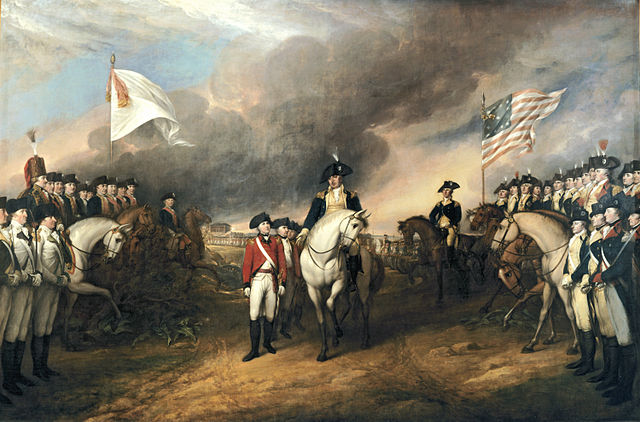
In case you missed last week’s quotes, see History October 6th – 12th.
To never miss a Quill Quotes post, please subscribe via email and/or follow us on social media!
Leave a Reply